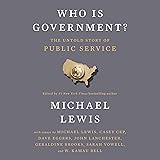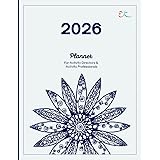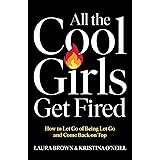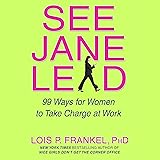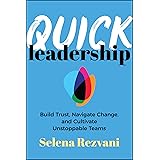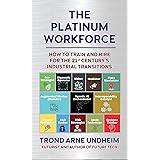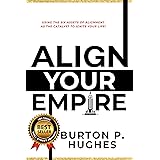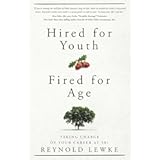Mastering Your Job Interview: Strategies for Guaranteed Success
Navigating the complexities of a job interview can often feel like walking a tightrope. Many job seekers experience anxiety, unsure of what to say or how to truly impress a hiring manager. The stakes are high, and standing out from a competitive pool requires more than just a good resume; it demands strategic communication. You’ve watched the insightful video above, which lays out ten brilliant things to say to elevate your interview game. Now, let’s delve deeper into each of these crucial points, exploring not just *what* to say, but *why* these phrases are so effective and how to integrate them seamlessly into your next job interview for guaranteed success.
The goal is clear: transform a standard Q&A session into a compelling conversation that showcases your value, professionalism, and genuine interest. By understanding the psychology behind these recommended statements, you gain a significant advantage, proving you are not just another candidate, but a future asset.
1. Begin with Gratitude: “Thank You for This Opportunity”
Opening your job interview by expressing thanks sets a positive and respectful tone immediately. Imagine if you were hosting an important guest, and they started by genuinely appreciating your invitation. It creates an instant connection. When the hiring manager invites you to introduce yourself, starting with, “Thank you for giving me the opportunity to be interviewed for this position today,” is more than just good manners; it’s a powerful psychological tool.
This simple act demonstrates humility and appreciation, two qualities highly valued in any professional setting. It tells the interviewer that you recognize their time is valuable and that you are serious about the role. Furthermore, it can help ease your own nerves by focusing on a positive, outward-facing statement rather than immediately diving into self-promotion. This foundational courtesy can subtly influence the interviewer’s perception of you throughout the entire interview process.
2. Showcase Genuine Interest: You’ve Researched Their Company
Many candidates approach interviews with a generic mindset, applying to numerous positions without deep understanding or genuine attachment to any specific company. This often leads to a high turnover rate for employers, as new hires quickly discover the role or company isn’t the right fit. Hiring managers recognize this pattern and seek candidates who are truly invested in *their* organization.
When you articulate that you’ve thoroughly researched their company and express a genuine desire to contribute long-term, you address a major pain point for employers. Imagine the impact: “I’ve been following [Company Name]’s innovative work in [specific area, e.g., sustainable technology] for some time, and I’m particularly impressed by [specific project or value]. I am eager to apply my skills to a company with such a forward-thinking mission and contribute to your continued growth.” This statement goes beyond merely wanting a job; it shows you want *this* job, with *their* company, for the long haul. This level of intentionality significantly boosts your appeal and perceived longevity.
3. Emphasize Flexibility and Adaptability
In today’s dynamic work environment, job roles are rarely static. Companies thrive on individuals who can pivot, take on new challenges, and support team objectives beyond their predefined duties. When asked about your greatest strengths, framing your flexibility and adaptability as key assets resonates strongly with hiring managers.
Consider this response: “My greatest strengths include being flexible and highly adaptable. I understand that business needs evolve, and I am always prepared to take on tasks outside my core job description to ensure team and company success. For instance, in my previous role, I often volunteered to assist with cross-departmental projects, which not only broadened my skillset but also helped us meet critical deadlines. I am also flexible with my working hours, understanding that occasional overtime can be essential to support company operations and deliver results, especially during peak periods.” This demonstrates a proactive, team-oriented mindset, assuring the interviewer that you are a resilient and resourceful employee, ready for whatever challenges the role may present.
4. Align Your Skills with the Job Description
Here’s a stark truth: a staggering 95% of candidates don’t thoroughly read the job description before their job interview. This oversight is a missed opportunity, leaving most candidates unable to articulate a direct fit for the role. The job description is essentially a roadmap provided by the hiring manager, detailing the exact skills, knowledge, and qualities they are looking for.
To truly stand out, explicitly reference the job description in your answers. When asked, “Why should we hire you?”, say something like: “You should hire me because I have meticulously reviewed the job description and can confidently say that my skills in [specific skill 1], my knowledge of [specific knowledge area 2], and my experience with [specific quality 3] directly align with the demands of this role. This direct match means I can integrate into your team seamlessly and begin making a positive and immediate impact, contributing to [mention a company goal or project].” This precision demonstrates not only your attentiveness but also your ability to understand and meet specific organizational needs. It shows you’ve done your homework and are ready to deliver from day one.
5. Express Your Desire to Become an Expert
Employers invest significant resources in their staff, and they seek individuals who are committed to growth and long-term contribution. When the interviewer probes about your five-year plan, avoid generic answers. Instead, paint a picture of dedicated specialization within their organization.
For example, you might say: “In five years, I envision myself still being a vital part of your company, either by excelling in this position with expanded responsibilities or having advanced into a higher-level role. My aspiration is to become a recognized expert in [your area of specialism] within this organization, not only driving key initiatives but also being a trusted resource who can mentor and train new team members as they join. I am committed to continuous learning and professional development to achieve this.” This response conveys ambition, loyalty, and a desire to add deep, lasting value to the company. It positions you as a strategic thinker who sees beyond the immediate role to a fulfilling career path within their ecosystem.
6. Highlight Your Track Record as a High Achiever
Past performance is often the best indicator of future success. Hiring managers want to know that you can deliver results. Before any job interview, take time to reflect on your key accomplishments, both professional and personal, that demonstrate your ability to achieve goals and exceed expectations.
When the interviewer asks, “What makes you stand out from other candidates?”, present yourself as a high achiever who brings a proven track record. You could say: “One distinguishing factor is my consistent track record of achievement. I am a high achiever, and I am confident I can replicate similar success for your company. For example, in my previous role at [Previous Company], I spearheaded an initiative to streamline our customer feedback process. By actively soliciting and analyzing customer input, we were able to refine our service delivery, which directly contributed to a 15% increase in customer satisfaction ratings and a measurable uplift in repeat business.” This provides concrete evidence of your capabilities, showing that you don’t just aspire to achieve; you *do* achieve.
7. Present a 30-60-90 Day Plan
This strategy is a powerful differentiator that demonstrates incredible foresight, initiative, and a strategic mindset. A 30-60-90 day plan outlines your vision for your initial impact and integration into the role. It shows you’ve already started thinking about how you’ll contribute, even before being hired.
At the end of the job interview, when the hiring manager asks, “Is there anything else you’d like to add?”, seize this moment. You might respond: “Thank you once again for this incredible opportunity. I’m genuinely excited about the potential of this role, and I’ve already prepared a preliminary 30-60-90 day action plan outlining how I envision contributing value in my first few months. I would be delighted to share a copy with you now.” This bold move not only impresses but also provides the interviewer with a tangible document that reiterates your commitment and readiness. Your plan should touch on:
- **First 30 Days (Learn & Listen):** Focus on understanding company culture, systems, key stakeholders, and immediate priorities.
- **First 60 Days (Contribute & Collaborate):** Begin taking on responsibilities, contributing to projects, identifying initial areas for improvement, and building relationships.
- **First 90 Days (Impact & Innovate):** Fully integrate into the role, lead initiatives, deliver measurable results, and propose new ideas.
This demonstrates proactive thinking and a commitment to hitting the ground running.
8. Address Weaknesses Strategically and Honestly
The “what’s your biggest weakness?” question is almost guaranteed to appear in a job interview. Avoid the common pitfalls of claiming no weaknesses or, worse, offering a thinly veiled strength like “I’m a perfectionist.” Such responses lack authenticity and can signal a lack of self-awareness.
Instead, choose a genuine weakness that isn’t central to the job description and, crucially, demonstrate how you are actively working to improve it. For instance: “My biggest weakness is that I sometimes find it challenging to say ‘no’ to requests for help. I naturally want to be supportive, which occasionally leads to me taking on too many responsibilities. However, I am keenly aware of this tendency and have been actively working on improving my time management and assessment skills. Before committing, I now pause to evaluate my current capacity and prioritize my core tasks to ensure I can deliver effectively without overextending myself.” This response showcases self-awareness, a commitment to personal growth, and an ability to address challenges constructively, qualities highly valued by any hiring manager.
9. Speak Positively About Your Former Employer
When asked, “Why do you want to leave your current job?”, resist the urge to air grievances about your past employer, boss, or colleagues. Negativity reflects poorly on you, not them, and can make a hiring manager question your professionalism and ability to handle conflict.
Instead, frame your departure in terms of seeking new challenges and growth opportunities. You might say: “I am ready for the next chapter in my career and am actively seeking a fresh challenge with a forward-thinking company like yours. My previous employer provided me with invaluable experience and a solid foundation, and I am genuinely grateful for the opportunities I had there. However, I am now at a point where I am eager to apply my skills and knowledge to more complex projects and contribute to an organization that aligns with my long-term career aspirations, which I believe this role and your company truly offer.” This approach maintains your professional integrity and shifts the focus positively towards your future contributions to the prospective company.
10. Always Ask Thoughtful Questions at the End
Failing to ask questions at the end of a job interview is a major misstep. It can signal a lack of interest, curiosity, or engagement. This is your final opportunity to demonstrate your active participation and strategic thinking.
Have a few insightful questions prepared. Here are three smart questions that can elicit valuable information and leave a lasting positive impression:
- **”Can you tell me more about the team I would be a part of in this role? What is the team’s dynamic like, and how does it typically collaborate on projects?”** This question shows you’re thinking about integration, teamwork, and company culture, which are critical for long-term fit.
- **”What would success in this position look like in 12 months from now? Are there specific metrics or achievements that would indicate someone is truly excelling?”** This demonstrates your results-orientation and helps you understand the expectations for the role, aligning your vision with theirs.
- **”What would my top three priorities be in this role once I start work, and how do those priorities align with the company’s broader objectives?”** This question showcases your ability to prioritize, your strategic thinking, and your eagerness to hit the ground running with a clear focus on contributing to the company’s overarching goals.
These questions not only provide you with crucial insights into the role and company but also reinforce your image as a thoughtful, engaged, and strategic candidate. They turn the tables slightly, allowing you to assess if the role is a good fit for *your* aspirations and professional growth, which further solidifies your position as a serious contender for job interview success.


